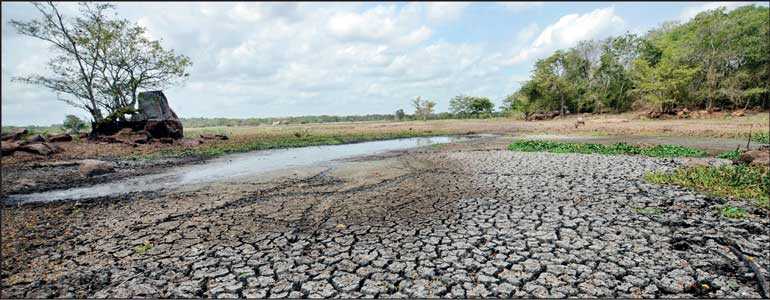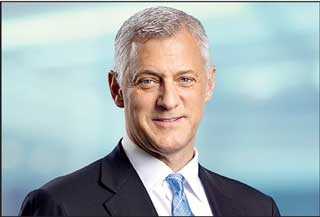Tuesday Feb 24, 2026
Tuesday Feb 24, 2026
Wednesday, 5 June 2019 00:00 - - {{hitsCtrl.values.hits}}

By Bill Winters
The clock is ticking on climate change. We currently have more greenhouse gases in our atmosphere than at any time in human history. 
As a result of our increasing economic activity, scientists estimate that, under one potential scenario, average temperatures could rise by 6 degrees Celsius by the end of this century. The consequences of that would be catastrophic for humanity. And the most alarming thing is that scientists call this scenario ‘business-as-usual’.
But this does not have to be the outcome. The term ‘business-as-usual’ itself implies that there must be an ‘unusual’ alternative that leads to a different outcome. We at Standard Chartered are committed to helping our clients, communities, stakeholders and ourselves achieve the climate goals, as set out in the Paris Agreement, to keep warming below 2 degrees Celsius.
We announced last year that we would develop a methodology to “measure, manage and ultimately reduce” the CO2 emissions from the activities we finance. We believe this is critical to enable us to meet these climate goals and support our clients through the low-carbon transition.
We can do this, but it won’t be easy. As a global bank, we operate in over 60 markets, many of which have fast-growing, increasingly prosperous economies which bring with them growing demand for energy, food, water and goods. We can help our communities meet that growing demand in a sustainable way, ensuring those markets have access to the capital they need to fund reliable, cleaner energy. We must also help them to improve their resilience to the potential impacts of climate change, of which they are often on the frontline. At Standard Chartered we believe we have both an obligation – and a unique opportunity – to help countries meet these challenges without compromising our collective climate goals. But like action on climate change itself, measuring emissions is complex and requires action from multiple parties. This is a challenge we cannot solve alone. Today we are making public the work we have done to date to build our methodology. We want to use this to drive the conversation, to accelerate progress and to prevent duplicated efforts. As we see it, success depends on joint efforts among financial institutions to help collectively and continually refine this methodology, as well as widespread company disclosures of accurate and meaningful emissions data. With the objective of refining our framework, we’re collaborating with four other banks – BBVA, BNP Paribas, Société Générale and ING – through the Katowice Commitment to develop the methodologies and tools the banking sector needs to assess our own contribution to climate goals. We are making some progress, but with more collaborators, we can do more.
We recognise that getting robust, verifiable data in many of our markets may take some time, but we are not waiting. We’ve joined forces with 2 Degrees Investing Initiative (2DII), a climate think tank to pilot a software tool which provides emissions assessments, the actions and findings of which can be found in our emissions white paper. Our pilot has shown a lot of promise, and with the help of other banks and stakeholders, we can make more headway and find answers to the challenges we have identified: getting the right data, validating it and scaling it up to cover 100 per cent of our portfolio. Of course, none of our actions will matter without the efforts of companies across our markets. Disclosures are critical, to show current progress in the transition to a low-carbon future, and help us and other banks understand where capital is needed to complete this transition. There is much we can do in working with clients to assess, and improve, their emissions profiles.
Disclosures make perfect business sense – the Paris Agreement is expected to open up climate investment opportunities of $ 23 trillion in emerging markets between now and 2030, according to the IFC. Much of this investment flow will be guided by and dependent on emissions data. When the private sector recognises its business case, disclosures on climate-related matters can become the new ‘business-as-usual’.
The stakes cannot be overstated. To ensure that the flow of capital reaches the places where it is needed most to achieve climate goals, the world must work together and fast. ‘Business-as-usual’ as we know it is no longer acceptable; let’s all come together to help ensure the sustainability of our planet.
(The writer is Group CEO, Standard Chartered.)